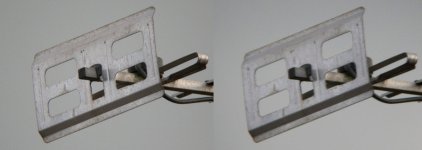Suffolk naturalist
Active member
I recently bought a used Kowa 823, mainly to give digiscoping a try, and have been very impressed with its performance, particularly with the latest versions of the Kowa 21x and 32x eyepieces. It's a huge improvement over my previous Kowa 613 (which isn't bad in its own right!).
However, worried about getting muck or scratches on that expensive front element I bought a Hoya HMC UV filter to protect it. I put the filter on and did a few test shots in my garden and was suprised to see a weird fuzzy fringing on my bird images. At first I thought it was bad technique or that I had damaged the scope or an eyepiece somehow. But after a process of elimination I found it was the filter. Without the filter the images are fine.
I just wondered whether anyone else had experienced this problem. Have I just got a bad filter, is it something to do with the interaction of scope and filter or shouldn't I be using one at all?
Any advice would be much appreciated...
Cheers
Malc
However, worried about getting muck or scratches on that expensive front element I bought a Hoya HMC UV filter to protect it. I put the filter on and did a few test shots in my garden and was suprised to see a weird fuzzy fringing on my bird images. At first I thought it was bad technique or that I had damaged the scope or an eyepiece somehow. But after a process of elimination I found it was the filter. Without the filter the images are fine.
I just wondered whether anyone else had experienced this problem. Have I just got a bad filter, is it something to do with the interaction of scope and filter or shouldn't I be using one at all?
Any advice would be much appreciated...
Cheers
Malc






